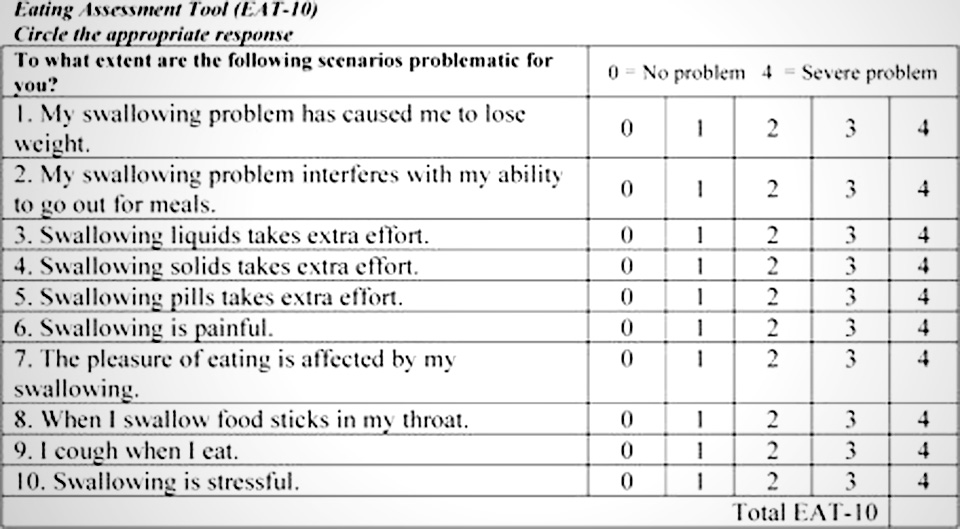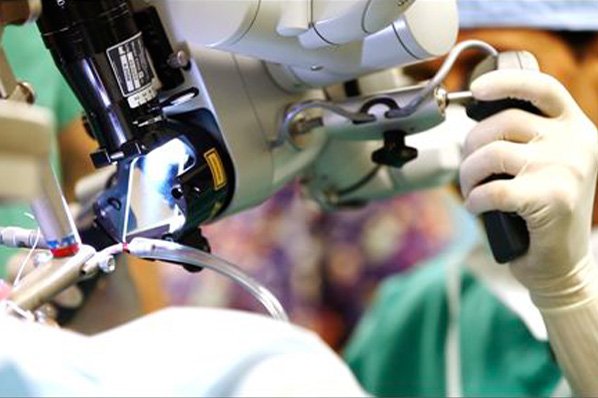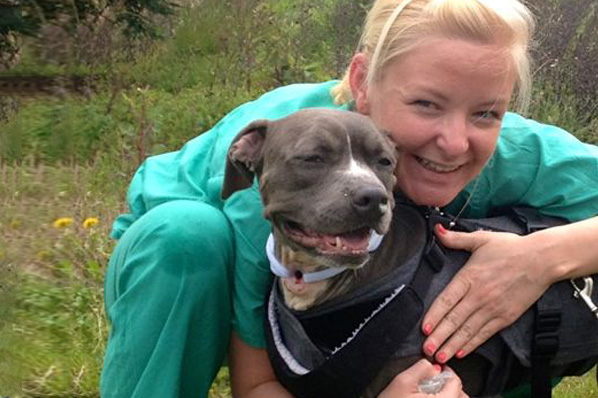
Dysphagia is a symptom, not a disease. Patients reporting the symptom of dysphagia may lack objective evidence of swallowing dysfunction. In order to accurately quantify the symptom of dysphagia, UC Davis CVS researchers have developed and validated a 10-item self administered survey instrument entitled the Eating Assessment Tool or EAT-10 (Ann Otol Rhinol Laryngol. 2008 Dec;117(12):919-24.).
The EAT-10 allows clinicians and scientists to document the degree of patient-reported swallowing-related disability as well as monitor dysphagia treatment efficacy. Normative data suggests that an EAT-10 ≥ 2 is abnormal. The instrument is becoming one of the most commonly used clinical research tools globally for persons with swallowing difficulty and is the primary outcome measure for dozens of investigations and clinical trials. The EAT-10 has been translated into numerous languages, including Japanese, Spanish, Anatolian Turkish, Italian, Chinese, and Portuguese.
Development of a pediatric version of the EAT-10 as well as a version to quantify the degree of swallowing difficulty for dogs and cats is currently underway.


